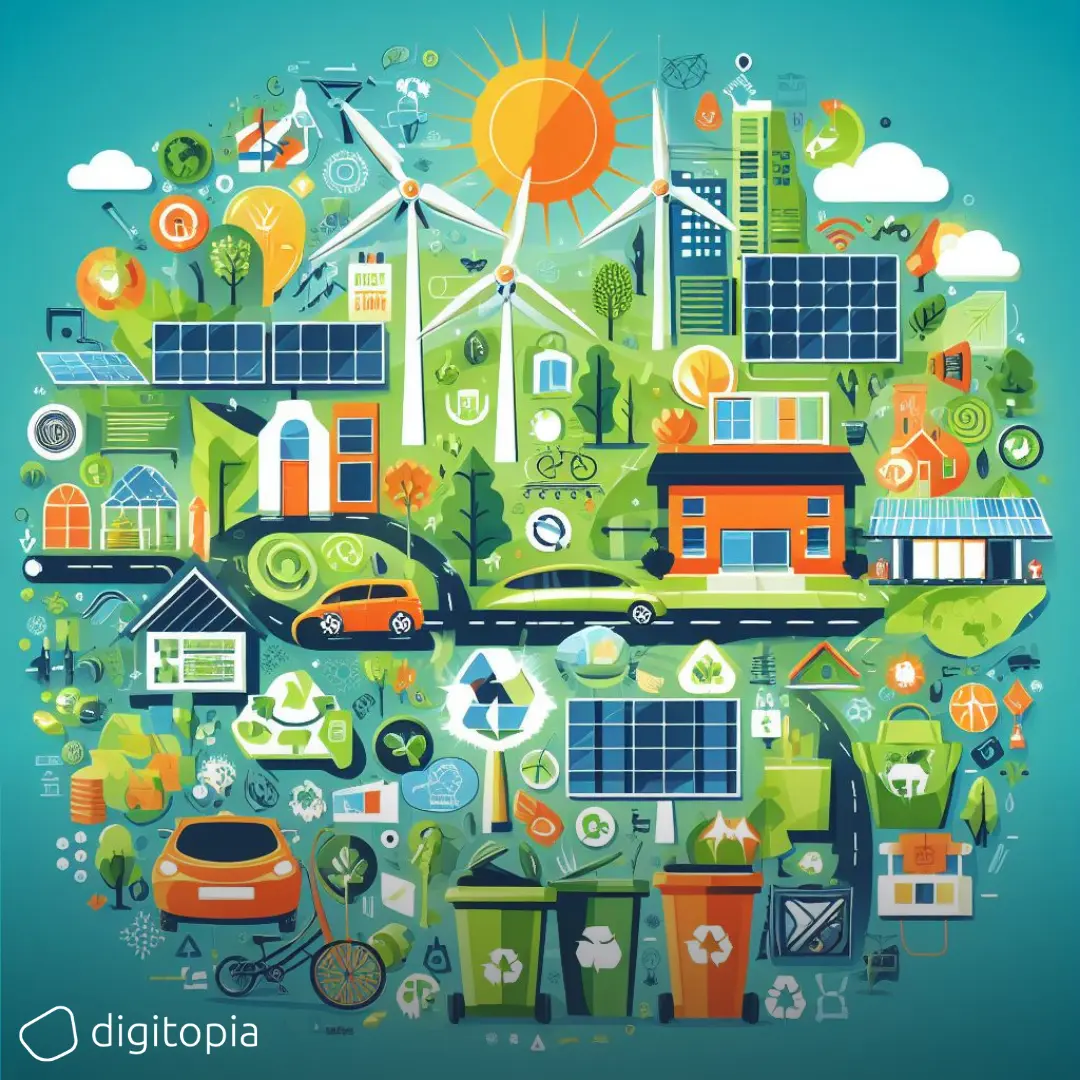
In today’s rapidly changing world, sustainable business innovations have become essential for companies looking to create positive environmental and social impact while driving long-term success. By integrating sustainability into their strategies, businesses can address pressing global challenges and unlock new opportunities for growth and innovation. This article explores successful examples of sustainable business innovations across five subject areas: Renewable Energy, Circular Economy, Sustainable Agriculture, Green Technologies, and Social Entrepreneurship.
1. Renewable Energy Innovations
Renewable energy innovations have the potential to transform the energy landscape and combat climate change. Tesla, a leading electric vehicle and clean energy company, exemplifies successful innovation in this field. Tesla has revolutionized the transportation sector by developing high-performance electric vehicles and advanced energy storage solutions while accelerating the adoption of renewable energy sources.
Real-Life Success Story: SolarCity – Democratizing Solar Energy
SolarCity, now a part of Tesla, played a crucial role in democratizing solar energy by introducing innovative business models. By offering solar panel installations with no upfront cost and instead focusing on long-term power purchase agreements, SolarCity made solar energy accessible to a broader range of consumers. This approach revolutionized the solar industry, reducing barriers to entry and driving widespread adoption of renewable energy.
2. Circular Solutions in Business
The circular economy focuses on reducing waste, maximizing resource efficiency, and promoting the reuse and recycling of materials. Interface Inc., a modular carpet manufacturer, demonstrates successful innovation in the circular economy. The company has implemented a closed-loop recycling system, “Mission Zero,” which involves collecting used carpet tiles, recycling them into new ones, and minimizing waste generation.
Real-Life Success Story: Mud Jeans – Circular Fashion
Mud Jeans, a Dutch denim brand, has disrupted the fashion industry by adopting a circular business model. The company offers a “lease a jeans” concept, where customers can lease jeans instead of buying them outright. At the end of the lease, the jeans are returned, and Mud Jeans repairs or upcycles them for resale. This innovative approach reduces the environmental impact of fashion consumption and encourages a more sustainable and circular approach to clothing.
3. Responsible Supply Chains for Sustainability
Innovations in sustainable agriculture play a vital role in addressing food security, biodiversity loss, and climate change. One successful example is vertical farming, which grows crops indoors in vertically stacked layers. AeroFarms, an agriculture technology company, has pioneered vertical farming systems that optimize resource usage, reduce water consumption, and eliminate the need for pesticides or synthetic fertilizers.
Real-Life Success Story: AeroFarms – Revolutionizing Vertical Farming
AeroFarms’ vertical farming systems utilize advanced aeroponic technology, where plants are grown in a misty, nutrient-rich environment without soil. By controlling factors such as light, temperature, and humidity, AeroFarms can achieve optimal growing conditions, resulting in higher yields and reduced resource usage. These innovations have the potential to revolutionize agriculture by enabling year-round crop production in urban areas with minimal environmental impact.
4. Green Innovations for Sustainability
Green technologies encompass many innovations that promote sustainability and environmental stewardship. An inspiring example is Ecovative Design, a company that develops sustainable packaging materials using mycelium, the root structure of mushrooms.
Real-Life Success Story: Beyond Meat – Plant-Based Protein
Beyond Meat, a leader in the plant-based meat industry has successfully introduced innovative green technologies to address the environmental impact of traditional animal agriculture. By developing plant-based meat alternatives that replicate the taste and texture of animal-based products, Beyond Meat offers a sustainable solution to the growing demand for protein. Their approach reduces greenhouse gas emissions, land and water usage, and reliance on conventional livestock farming.
5. Social Impact Innovations Empowering Communities
Social entrepreneurship combines business innovation with a focus on addressing social and environmental challenges. One notable example is Patagonia, an outdoor apparel company renowned for its commitment to sustainability and social impact.
Real-Life Success Story: B Corp Movement – Business as a Force for Good
The B Corp movement represents a collective effort by businesses worldwide to redefine success in business beyond just financial performance. Companies that achieve B Corp certification undergo a rigorous assessment of their social and environmental impact. This movement has encouraged businesses to prioritize social and environmental responsibility, inspiring a global network of companies committed to using business as a force for good.
Unleashing Sustainable Potential through Innovative Business Practices
Renewable Energy: Embracing renewable energy solutions, such as electric vehicles and solar power, drives sustainable transportation and clean energy adoption.
Circular Economy: Implementing circular economy principles minimizes waste, maximizes resource efficiency, and promotes a more sustainable approach to product lifecycles.
Responsible Supply Chains: Prioritizing responsible sourcing and supply chain management ensures ethical practices and contributes to global sustainability efforts.
Green Technologies: Leveraging green technologies reduces environmental impact and offers sustainable alternatives to harmful materials and practices.
Social Impact: Business innovation can address social challenges, foster inclusive growth, and empower marginalized communities.
Successful examples of sustainable business innovations demonstrate the transformative power of integrating sustainability into business practices. From renewable energy advancements to circular economy models, responsible supply chains, green technologies, and social impact initiatives, companies drive positive change while reaping tangible benefits. These examples highlight the vast potential of innovative business practices to create a more sustainable future and inspire a new era of sustainable business models. By embracing sustainable business innovation, companies can contribute to a healthier planet, stronger communities, and long-term prosperity.

